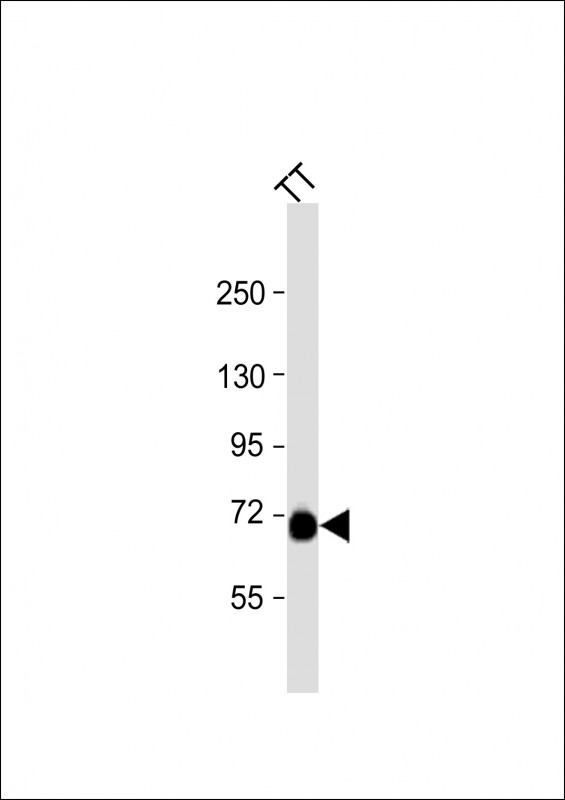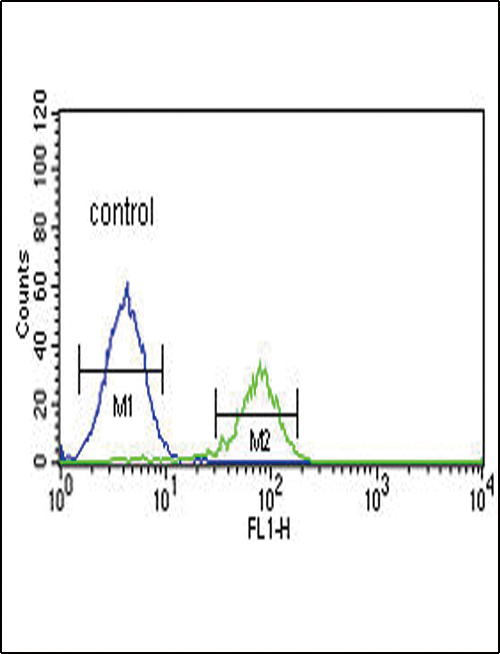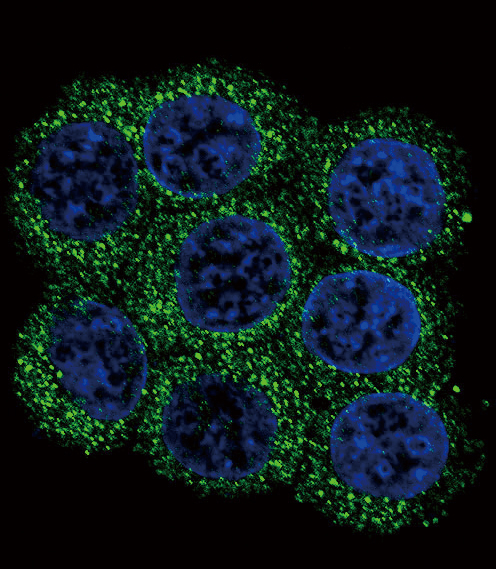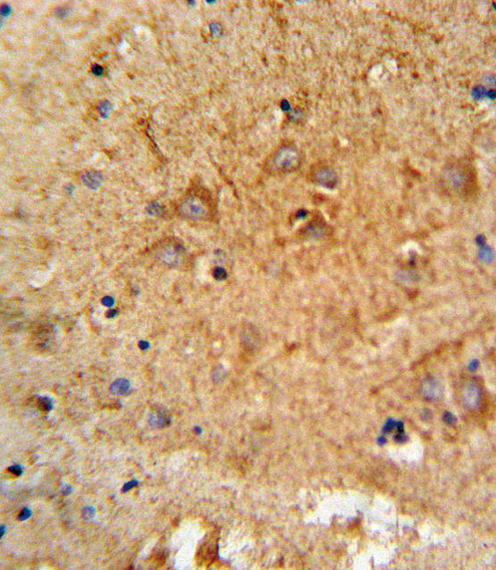




| WB | 1/1000 | Human,Mouse,Rat |
| IF | 咨询技术 | Human,Mouse,Rat |
| IHC | 1/100-1/500 | Human,Mouse,Rat |
| ICC | 1/10-1/50 | Human,Mouse,Rat |
| FCM | 1/10-1/50 | Human,Mouse,Rat |
| Elisa | 咨询技术 | Human,Mouse,Rat |
| Aliases | Neuroendocrine convertase 2, NEC 2, KEX2-like endoprotease 2, Prohormone convertase 2, Proprotein convertase 2, PC2, PCSK2, NEC2 |
| Entrez GeneID | 5126 |
| WB Predicted band size | 70.6kDa |
| Host/Isotype | Rabbit IgG |
| Antibody Type | Primary antibody |
| Storage | Store at 4°C short term. Aliquot and store at -20°C long term. Avoid freeze/thaw cycles. |
| Species Reactivity | Human, Mouse |
| Immunogen | This PCSK2 antibody is generated from rabbits immunized with a KLH conjugated synthetic peptide between 87-116 amino acids from the N-terminal region of human PCSK2. |
| Formulation | Purified antibody in PBS with 0.05% sodium azide,1%BSA and 50% glycerol.prepared by Saturated Ammonium Sulfate (SAS) . |
+ +
以下是关于PCSK2(N-term)抗体的3篇参考文献,包含文献名称、作者及摘要内容的简要概括:
---
1. **文献名称**:*"Proprotein Convertase Subtilisin/Kexin Type 2 (PCSK2) in the Immune System: Role in Cytokine Processing"*
**作者**:Müller, S. et al.
**摘要**:该研究利用PCSK2 (N-term)特异性抗体,验证了PCSK2在免疫细胞中的表达,并发现其通过调节IL-1β等促炎细胞因子的前体加工,参与炎症反应的调控。
2. **文献名称**:*"PCSK2 Deficiency Alters Insulin Secretion and Glucose Homeostasis in Mice"*
**作者**:Zhang, Y. & Steiner, D.F.
**摘要**:通过PCSK2 (N-term)抗体的免疫印迹分析,发现PCSK2敲除小鼠的胰岛β细胞中胰岛素原加工异常,导致胰岛素分泌缺陷及糖代谢紊乱,提示其在糖尿病病理中的潜在作用。
3. **文献名称**:*"Localization of PCSK2 in Neuroendocrine Tissues Using a Novel N-terminal Antibody"*
**作者**:Voronina, S.G. et al.
**摘要**:研究开发了一种针对PCSK2 N末端的单克隆抗体,通过免疫组化证实PCSK2在脑下垂体、胰腺等神经内分泌组织高表达,并参与神经降压素(neurotensin)等肽类激素的成熟过程。
---
以上文献均聚焦于PCSK2蛋白N端抗体的应用,涵盖其在免疫调节、糖代谢及神经内分泌系统中的功能研究。如需具体DOI或期刊信息,可进一步补充关键词检索。
The PCSK2 (N-term) antibody is designed to target the N-terminal region of proprotein convertase subtilisin/kexin type 2 (PCSK2), a serine protease belonging to the proprotein convertase (PC) family. PCSK2. also known as PC2. plays a critical role in processing prohormones and neuropeptides by cleaving precursor proteins at specific paired basic residues. It is predominantly expressed in neuroendocrine tissues, including pancreatic islets, brain, and endocrine cells, where it contributes to the activation of hormones such as insulin, glucagon, and pro-opiomelanocortin (POMC). The N-terminal region of PCSK2 is involved in zymogen activation, intracellular trafficking, and interaction with regulatory proteins like 7B2. which is essential for its enzymatic activity and stability.
Antibodies targeting the N-terminal domain are valuable tools for studying PCSK2’s biosynthesis, maturation, and subcellular localization. They are commonly used in techniques such as Western blotting, immunohistochemistry, and immunofluorescence to investigate tissue-specific expression patterns or dysregulation in diseases like diabetes, obesity, and neurodegenerative disorders. The N-term specificity helps distinguish PCSK2 from other PC family members (e.g., PCSK1/PC1) and may detect precursor forms of the enzyme, providing insights into its post-translational processing. Research utilizing this antibody contributes to understanding the enzyme’s role in peptide hormone regulation and its potential as a therapeutic target.
×